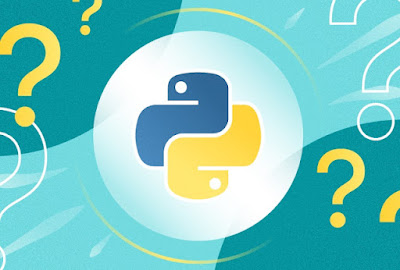Introduction
Python, a high-level, dynamically typed, and interpreted programming language, has captured the hearts of developers around the world. Its simplicity, readability, and versatility make it an ideal choice for both beginners and experienced programmers. In this blog, we'll delve into the key features of Python and explore its diverse applications across various domains. Additionally, we'll take a closer look at some popular Integrated Development Environments (IDEs) that can help streamline your Python development journey.
Key Features of Python
Readable Syntax: Python's syntax is designed for human-readability. The use of indentation for code blocks enforces clean and consistent formatting, making your code not only functional but also aesthetically pleasing.
Dynamically Typed: Python's dynamic typing eliminates the need to explicitly declare variable data types. The interpreter determines the data type during runtime, enhancing flexibility and reducing coding overhead.
Interpreted Execution: Python's interpreted nature allows code to be executed line by line, facilitating faster development and easier debugging compared to compiled languages.
Extensive Standard Library: Python's standard library is a treasure trove of modules and packages that cater to a wide array of tasks, from simple file I/O to complex web development and data analysis.
Cross-Platform Compatibility: Whether you're on Windows, macOS, or Linux, Python runs seamlessly across platforms, making it a language of choice for multi-platform projects.
Dynamic Memory Management: Developers can breathe easy as Python automates memory management, handling the allocation and deallocation of memory for variables.
Object-Oriented: Python's support for object-oriented programming (OOP) allows the creation of reusable code through classes and objects, promoting structured and modular development.
Applications of Python
Web Development: Python's web frameworks like Django and Flask empower developers to create dynamic websites, APIs, and web applications with ease.
Data Science and Analytics: Libraries like NumPy, pandas, and Matplotlib provide robust tools for data manipulation, analysis, and visualization, making Python a favorite among data scientists.
Machine Learning and AI: Python reigns supreme in the field of machine learning and artificial intelligence, offering libraries such as TensorFlow, PyTorch, and scikit-learn for model development and training.
Automation and Scripting: Python's simplicity makes it ideal for scripting, automation, and system administration tasks, streamlining routine processes.
Scientific Computing: Researchers and scientists rely on Python's scientific libraries for simulations and data analysis in various scientific disciplines.
Game Development: With libraries like Pygame, Python isn't just for data crunching; it's also a tool for crafting interactive 2D games.
Popular Python IDEs
1. PyCharm: JetBrains' PyCharm offers a comprehensive suite of features for professional Python development, including code completion, debugging, and integration with web frameworks like Django and Flask.
2. Visual Studio Code (VS Code): Microsoft's VS Code, a versatile code editor, can transform into a powerful Python IDE with extensions like Python, Jupyter, and IntelliSense.
3. Jupyter Notebook: Essential for data scientists, Jupyter Notebook provides an interactive environment for combining code, visualizations, and explanatory text in a shareable document.
4. Spyder: Designed for scientific and data analysis tasks, Spyder integrates seamlessly with libraries like NumPy and pandas, catering to researchers and data scientists.
5. IDLE: Python's built-in IDE, IDLE, is a lightweight option suitable for beginners and quick testing, though it may lack advanced features.
6. Atom: GitHub's Atom, customizable with extensions, offers a personalized environment for Python development.
7. Thonny: Thonny's beginner-friendly interface makes it an excellent choice for learners and educators, featuring integrated debugging and code completion.
Conclusion
Python's elegance, coupled with its robust ecosystem and versatile applications, has established it as a top-tier programming language. Whether you're venturing into web development, data science, AI, or automation, Python offers the tools and resources you need to succeed. And with a selection of powerful IDEs at your disposal, your Python development journey is bound to be a productive and enjoyable one. So, whether you're just starting out or looking to expand your coding horizons, Python is the language that welcomes all. Happy coding!

